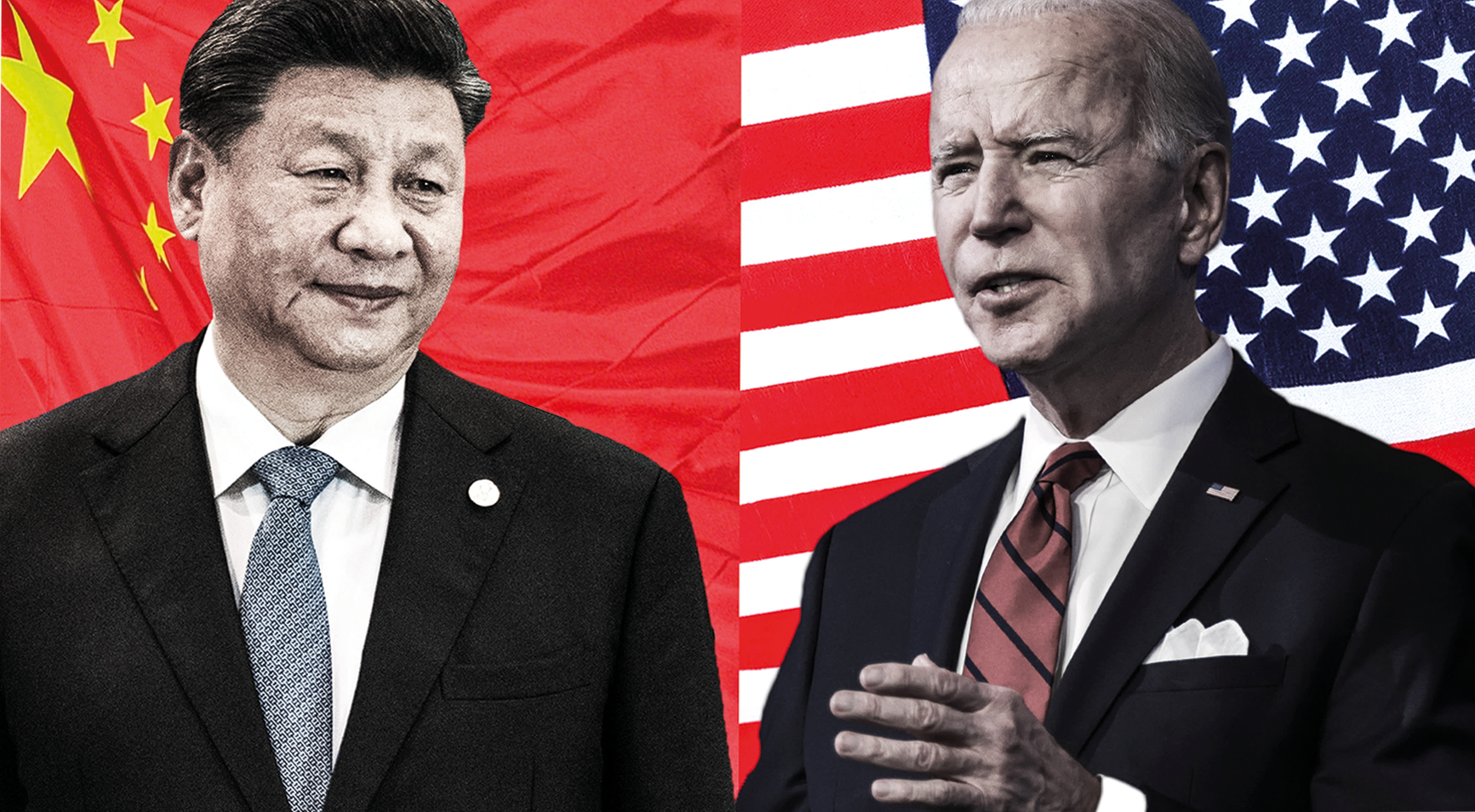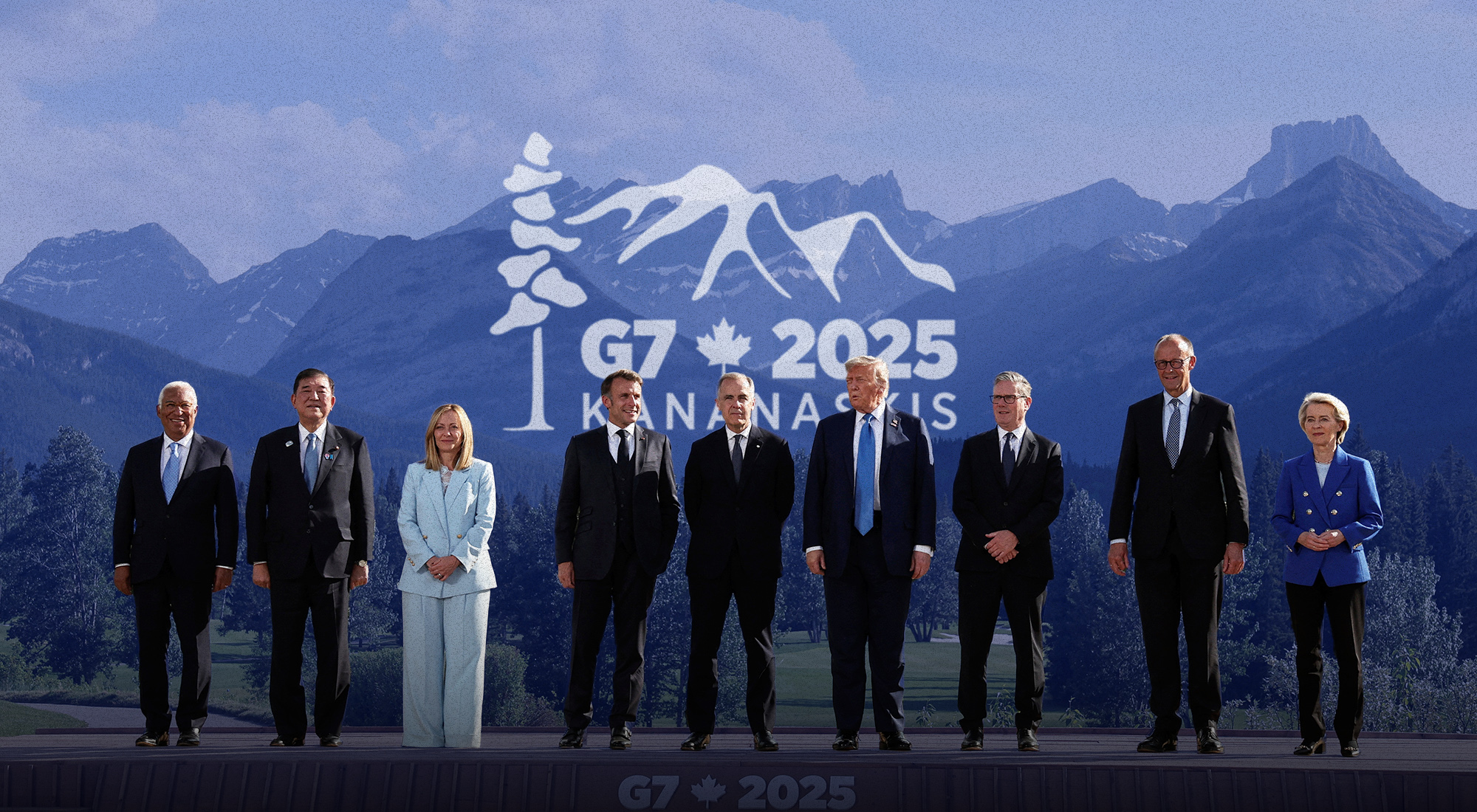US-China relations have undoubtedly reached a historical all-time low. President Biden has followed the previous administrations’ approach and has continued to advance America’s foreign policy pivot eastward towards China while pulling back from international flashpoints as was witnessed this past August with the US military withdrawal from Afghanistan. While the Biden Administration’s China doctrine is still work in progress, its over-arching theme includes a two-pronged approach: on one side, diminish China’s global influence and continue to develop a policy that counters the country’s attempts to upend the rules-based international order; on the other side, maintain open lines of communication to avoid a Cuban missile crisis scenario whereby strategic miscommunication could lead to dangerous and unintended consequences.
For the US, the primary objective is to counter China’s expanding political and economic global influence. One recent initiative in this context was the Innovation and Competition Act of 2021, which the Senate has endorsed. It seeks a robust and more assertive US policy towards Chinese global expansion. The proposed legislation is intended to undermine China’s ambitions for technological supremacy by boosting US capabilities. The idea is to compete domestically with Chinese technology through a $250 billion investment in key US industries specializing in critical technologies such as artificial intelligence, high performance computing, advanced manufacturing and the commercialization of those technologies to businesses in the United States.[1] The bill also promotes Biden’s ‘Buy American’ agenda by stimulating US job creation and boosting the domestic economy. With the US government injecting billions of dollars into the investment of competitive fields such as A.I., quantum computing, and biomedical industries, the findings of such research is intended to be shared with the private sector, resulting in both industrial and domestic job growth.[2] Ultimately, the legislations prime objective is to ensure China does not foreshadow the US in technological supremacy.
Simultaneously, the US is applying pressure on China to respect to the rules-based international order. The US believes that China is pushing to destroy that order over time, though China itself greatly flourished under it over the last few decades. The US perspective is that China’s objective is to diminish the US-led global order, expand its own global ambitions and ultimately seek “hegemony over what it sees as a rightful regional sphere of influence,” while aspiring to ‘”challenge the United States for global leadership — economically, politically, and some believe, eventually militarily.”’[3] China’s rise, particularly over the last decade, grew in tandem with what some analysts see as the decline in US global supremacy.
Beginning with the US’ unilateral invasion of Iraq, followed by the 2008 financial crisis, to the election of Donald Trump and his mismanagement of the COVID-19 crisis, China has taken advantage of what they perceive as America’s ‘downward trajectory’ to upend the current world order. This is in accordance with a theory known as the ‘Thucydidean Trap’ whereby the ruling power is challenged by a rising rival and typically results in hostilities — or war. To avoid confrontation, the issues of strategy, communication and ‘transactional cooperation’[4] in areas of mutual interest are vital for a competitive, yet stable US-China relationship.
In their first bi-lateral meeting since Biden took office, US Secretary of State Antony Blinken met with his Chinese counterpart, Foreign Minister Wang Yi, in Anchorage, Alaska with the purpose of discussing a range of issues including global health and COVID-19, climate change, nuclear non-proliferation and Iran. However, during his opening remarks to the press, Secretary Blinken blindsided Yi by calling out China for its aggressive actions in Hong Kong and Taiwan, its cyber-attacks against the US and China’s economic coercion towards US allies. Blinken regarded all of these as actions that “threaten the rules-based order that maintains global stability.”’[5] The importance of the international order, Blinken stated, is “not an abstraction”, but rather “helps countries resolve differences peacefully, coordinate multilateral efforts effectively and participate in global commerce with the assurance that everyone is following the same rules. The alternative to a rules-based order is a world in which might makes right and winners take all, and that would be a far more violent and unstable world for all of us.”
In response, China’s top diplomat stated that on the contrary, the US has “exercised long-arm jurisdiction and suppression, and overstretched national security through the use of force or financial hegemony and by creating obstacles for normal trade activities, and the United States has also been persuading some countries to launch attacks on China.”[6] While the tit-for-tat was an opportunity for the US to apply pressure on China in front of the press, the outbursts were nonetheless necessary. For far too long, both the US and China have lacked a coherent strategy on how to restrain the global aspirations of each other. Yet publicly voicing their grievances lays the groundwork for a new ‘competitive engagement’ in US-China relations.
The complexity of US-China relations requires a policy approach that is adaptive to the countries’ two vastly different governing methodologies – liberal democracy verses autocracy. Secretary Blinken has described US engagement with China as “competitive where it should be, collaborative where it can be, adversarial where it must be.” While the US and China will continue to compete vigorously in areas of economics, trade and innovation, cooperating on issues that impact not only their own interests but that of global community — such as climate change, global health, counter-narcotics and nuclear non-proliferation — this provides a tangible starting point to re-calibrate US-Sino relations. However, in order for the US to challenge China on actions that counter American values, interests or jeopardize the interests of its allies and partners, a delicately nuanced approach must be taken to ensure “responsible management”[7] of the US-China relationship. However, establishing such a baseline for the Biden Administration has been no easy task thus far.
Following the bilateral discussions in Alaska, US Deputy Secretary of State Wendy Sherman visited China in July 2021 to sit with Wang to discuss areas of cooperation such as climate change and North Korea’s nuclear ambitions, but also sensitive areas of concern. These included China’s human rights violations, particularly its anti-democratic takeover of Hong Kong, its “ongoing genocide and crimes against humanity in Xinjiang, abuses in Tibet and the curtailing of media access and freedom of the press.”[8]
In response to the US concerns, Chinese state media reported that Vice Foreign Minister Xie Feng presented Secretary Sherman with two lists of grievances: one detailing a “list of US wrongdoings that must stop” and two, a “list of key individual cases that China has concerns with.” The ‘wrongdoings’ list included such demands from the US as “unconditionally revoking the visa restrictions over Communist Party of China (CPC) members and their families, revoking sanctions on Chinese leaders, officials and government agencies, and removing visa restrictions on Chinese students.”[9] Vice Foreign Minister Xi addressed the US’ “competitive, collaborative and adversarial rhetoric” towards its China policy as the US attempting to “demand cooperation when it wants something from China; decoupling, cutting off supplies, blockading or sanctioning China when it believes it has an advantage; and resorting to conflict and confrontation at all costs. It seems that the US only thinks about addressing its own concerns, getting the results it wants and advancing its own interests.”[10]
Such a response from the Chinese has been fueled by the demands that the US halt criticisms on matters that China considers ‘internal affairs’, a point that remains one of the greatest challenges to US-China relations. In a virtual discussion with the Council on Foreign Relations, Chinese Foreign Minister Yi explained that China will not compromise on its sovereignty, referring particularly to the ‘Taiwan Question’, and that the US should “not repeatedly challenge China’s rights and interests” on territorial integrity, while expecting China in return to cooperate in areas the US deems important to its own interests.[11] From the American perspective, the US expects its partners and allies to respect the Universal Declaration of Human Rights (UDHR), a declaration China itself helped to draft in 1948.
Commenting on China’s demands that the US stop criticizing Beijing’s behavior, US Deputy Secretary of State Wendy Sherman stated: “China takes a very transitional approach — basically, you have to let us do whatever we want if you want us to cooperate,” which fundamentally contradicts the principles of American values. “As I said to the Chinese, this is not about their internal matters; this is about a Universal Declaration of Human Rights that they signed up to and that they are responsible for.”[12] This dispute continues to remain one of the underlying and most debilitating elements in the context of US-Sino relations.
Recognizing the need to resolve such a stalemate early, President Biden and President Xi spoke over the phone for only the second time this past September in order to “set the guardrails on the relationship”[13] while ensuring that their nations’ rivalry does not veer into a conflict.[14] While President Xi blamed US policy towards China for the decline in relations, like Biden, he recognized the urgency of acting responsibly in order to best serve their own fundamental interests as well as the interests of their allies and partners, especially considering that the US and China are the world’s two largest economies. A serious conflict between them would result in an economic ripple effect around the world.
The call could not have come at a more strained time considering the recent assertive incursions of China’s air force into Taiwan’s national airspace, which totaled a record 87 sorties throughout 2020 and more than the last five years’ combined.[15] Such provocative military displays continued to intensify in recent weeks, with 145 fighter jets entering Taiwan’s air defense zone during the first week of October alone. While President Xi recently proclaimed that his country’s objective was “complete reunification” with Taiwan, the US State Department berated the aggressive military actions, noting that they undermined regional peace and stability while running the risk of miscalculation.[16] Additionally the US reaffirmed its “rock-solid” commitment to Taiwan, particularly its right to defend itself. In 2020, the US approved arms sales to Taiwan worth a massive $5.1 billion. In 2021, the Biden Administration made its first commitment to the defense of the island by announcing an additional $750 million worth of arms sales, further intensifying tensions with China.
For Biden, the importance of a democratic Taiwan has far more to do with ideology and democracy than having a militarized upper hand with China. At the G7 summit this past summer, Biden signaled to his European allies that democracies today are in a “contest with autocrats and autocratic governments around the world as to whether or not democracies can compete with them in the rapidly changing 21st century.”[17] Taiwanese President Tsai Ing-wen, voicing the same urgency in a recent op-ed article in Foreign Affairs warned fellow democracies across the globe: “If Taiwan were to fall, the consequences would be catastrophic for regional peace and the democratic alliance system. It would signal that in today’s global contest of values, authoritarianism has the upper hand over democracy.”[18]
Conclusion
While White House officials claim the recent announcement of an upcoming virtual summit between President Biden and President Xi shouldn’t be viewed as a ‘thaw’ in relations, but rather the intention is to, ‘achieve is a steady state between the United States and China where we are able to compete intensely but to manage that competition responsibly,[19] What is clear, however, is that both leaders prioritize the importance of communication in order to avoid misunderstandings even as current tensions between the US and China run high. Biden holds the notion that ‘personal diplomacy’ between himself and Xi is “key to managing the high-stakes, at times confrontational, relationship between the US and China.”[20] If high-level interaction and communications fail to deter China’s future aggressions — just as we are witnessing in Taiwan — it would be in the US interests to revert to the Cold War art of ‘dissuasion,’ a multi-dimensional tactic that convinces an adversary that a particular aggression would be doomed to fail or that they would “suffer catastrophic consequences if successful.”[21] However, it remains highly unlikely that the US would enter into yet another continuous militarized incursion considering America just ended its longest war in Afghanistan. This is a fact that the Chinese are fully aware of and most likely capitalizing on in their efforts to retake Taiwan.
Nonetheless, the fact that China remains — at least for now — the US’ number one adversary, has led the CIA to announce that the agency is establishing a new China Mission Center, indisputably underscoring America’s new strategic focus to deflect China’s rising global ambitions. Sounding something like a throwback to the Cold War era, CIA Director William J. Burns explained that the Mission Center’s objectives will include collecting intelligence and countering Chinese espionage against the US while “further strengthening our work on the most important geopolitical threat we face in the 21st century, an increasingly adversarial Chinese government.”[22] The US assumption that China’s long-term aspirations to expand its economic and geopolitical power while weakening Western democracies and international norms led John O. Brennan, former CIA Director under the Obama Administration to be in agreement with Director Burns. “If there is any country that deserves its own mission center, it is China, which has global ambitions and presents the greatest challenge to US interests and to international order.”[23] However, the leading historian specializing on Sino–Southeast Asian relations, Professor Wang Gungwu, sees China’s long-term intentions as supporting international world order, just less so on America’s terms. Wang claims that China is “one of the strongest supporters of the current world order and wants to shore it up by replacing an American-dominated world with a multipolar one.”[24]
While strategic competition in areas of technology, economics and trade can often boost domestic manufacturing and encourage growth in local economies, it remains indisputable that the US and Chinese economies are more or less intertwined for the long haul. As China’s deeply rooted footprint across the world economy will only continue to flourish through the implementation of its Belt and Road Initiative, the US must begin to reassess its approach to managing its relationship with China. China is ubiquitous in its “no-strings attached” foreign policy. By removing itself from the politics of other nations, China approaches its diplomacy in a purely transactional manner: business first and no questions asked later.
Singapore’s former ambassador to the UN, Kishore Mahbubani, states that while China’s ambitions have more to do with revitalizing the Chinese civilization, they have much less interest in pushing their ideology or political practices onto others. “Chinese leaders find it easier than American leaders to deal with a diverse world, as they have no expectation that other societies should become like them. They, unlike Americans, understand that other societies think and behave differently.”[25] Regardless, it is important for the US to find a path of “Cold Peace” with China no matter how tense relations become, as conflict would result in devastating turmoil that would be felt in every corner of the global economy. In order to retain its place in the current global order, US leadership may need to eventually take the kind of transactional approach towards China like the latter does to others. In the words of the great Realist thinker, John Mearsheimer, “China is simply unable to rise peacefully — war after all, is the tragedy of Great power politics.”[26]
References
[1] S.1260 – United States Innovation and Competition Act of 2021, US Congress. https://www.congress.gov/bill/117th-congress/senate-bill/1260
[2] David E. Sanger. 2021. ‘Senate Poised to Pass Huge Industrial Policy Bill to Counter China,’ The New York Times, https://www.nytimes.com/2021/06/07/us/politics/senate-china-semiconductors.html
[3] Larry Diamon, 2019, Ill Winds: Saving Democracy from Russian Rage, Chinese Ambition, and American Complacency, Penguin Books.
[4] Thomas Wright, 2021, The US and China finally get real with the other, Brookings Institution. https://www.brookings.edu/blog/order-from-chaos/2021/03/22/the-us-and-china-finally-get-real-with-each-other/
[5] Secretary Antony J. Blinken, National Security Advisor Jake Sullivan, Director Yang and State Councilor Wang At the Top of Their Meeting, US Department of State. https://www.state.gov/secretary-antony-j-blinken-national-security-advisor-jake-sullivan-chinese-director-of-the-office-of-the-central-commission-for-foreign-affairs-yang-jiechi-and-chinese-state-councilor-wang-yi-at-th/
[6] Ibid.
[7] Deputy Secretary Sherman’s Visit to the People’s Republic of China, US Department of State. https://www.state.gov/deputy-secretary-shermans-visit-to-the-peoples-republic-of-china/
[8] Ibid.
[9] Shannon Tiezzi, During Latest Exchange, China Presents US with 2 lists of Grievances, The Diplomat. https://thediplomat.com/2021/07/during-latest-exchange-china-presents-us-with-2-lists-of-grievances/
[10] ‘Xie Feng: The competitive, collaborative and adversarial rhetoric is a thinly veiled attempt to contain and suppress China, Ministry of Foreign Affairs of the People’s Republic of China. https://www.fmprc.gov.cn/mfa_eng/wjbxw/t1895016.shtml
[11] Focusing on Cooperation and Managing Differences: Bringing China-US Relations Back to the Track of Sound and Steady Development, Ministry of Foreign Affairs of the People’s Republic of China. https://www.fmprc.gov.cn/mfa_eng/zxxx_662805/t1871285.shtml
[12] Wendy Sherman, No. 2 At the State Department, Visits China Amid Rising Tensions, NPR. https://www.npr.org/2021/07/29/1022094360/wendy-sherman-no-2-at-the-state-department-visits-china-amid-rising-tensions
[13] Zachary Basu, 202, Biden and China’s Xi agree to hold virtual summit before end of year, Axios. https://www.axios.com/biden-xi-summit-china-taiwan-17a175db-b102-4447-9a1d-36c17e3298cd.html
[14] Readout of President Joseph R. Biden Jr. Call with President Xi Jinping of the People’s Republic of China, The White House. https://www.whitehouse.gov/briefing-room/statements-releases/2021/09/09/readout-of-president-joseph-r-biden-jr-call-with-president-xi-jinping-of-the-peoples-republic-of-china/
[15] Anthony Capaccio, 2021, First Taiwan Arms Sale in Biden Administration Is Approved, Bloomberg. https://www.bloomberg.com/news/articles/2021-08-04/first-arms-sale-to-taiwan-by-biden-administration-is-approved
[16] Increasing People’s Republic of China Military Pressure Against Taiwan Undermines Regional Peace and Stability, US Department of State. https://www.state.gov/increasing-peoples-republic-of-china-military-pressure-against-taiwan-undermines-regional-peace-and-stability/
[17] Remarks by President Biden at press conference, The White House. https://www.whitehouse.gov/briefing-room/speeches-remarks/2021/06/13/remarks-by-president-biden-in-press-conference-2/
[18] Tsai Ing-wen, 2021, Taiwan and the Fight for Democracy A Force for Good in the Changing International Order, Foreign Affairs. https://www.foreignaffairs.com/articles/taiwan/2021-10-05/taiwan-and-fight-democracy
[19]John Revill & Steve Holland. 2021. ‘Biden, Xi plan U.S.-China virtual summit before year’s end, U.S. says,’ Reuters, https://www.reuters.com/world/china/us-says-agreed-with-china-virtual-biden-xi-summit-before-years-end-2021-10-06/
[20] Zachary Basu and David Lawler, Biden and China’s Xi agree to hold virtual summit before end of year, Axios. https://www.axios.com/biden-xi-summit-china-taiwan-17a175db-b102-4447-9a1d-36c17e3298cd.html
[21] Bryan Clark and Dan Patt, 2021, Art of Dissuasion, Defense One, https://www.defenseone.com/ideas/2021/09/users-cant-be-afterthoughts-pentagons-ai-efforts/185594/
[22] Julian E. Barnes, 2021, CIA Reorganization to Place New Focus on China, The New York Times. https://www.nytimes.com/2021/10/07/us/politics/cia-reorganization-china.html
[23] Shane Harris, 2021, CIA creates new mission center to counter China, The Washington Post. https://www.washingtonpost.com/national-security/cia-china-mission-center/2021/10/06/fd477142-26d4-11ec-8d53-67cfb452aa60_story.html
[24] Zheng Yongnian, 2012, China and International Relations: The Chinese View and the Contribution of Wang Gungwu, Routledge.
[25] Kishore Mahbubani, 2020, Has China Won? Public Affairs, New York.
[26] Christopher Coker, 2017, The Improbable War: China, the United States & the Logic of Great Power Confict, Hurst & Company, London.









